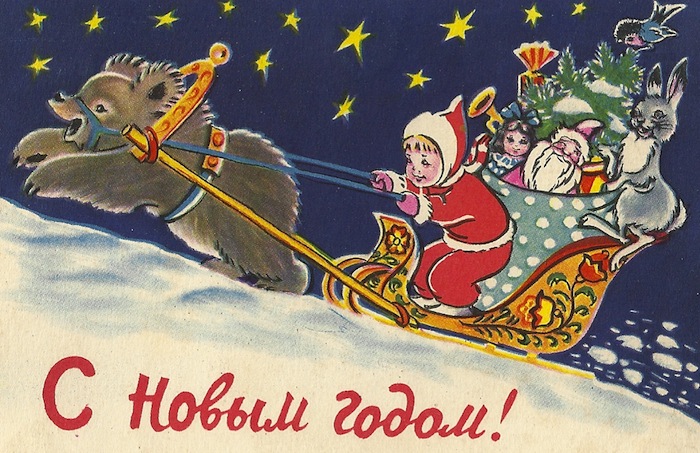I have spent Christmases in various places: in exile, labour camp, hospital. (Exile in this
context means that part of a prison sentence served after release from a labour camp, but still
not being allowed to return to one's home city.) In the hospital the staff was on alert to
confiscate even twigs of an evergreen tree during Christmas. At other times no limit was
placed on evergreens in hospital wards. In exile a Christmas tree was allowed but without
any decorations, even candles. There simply was none. In labour camp Christmas
was celebrated in one's own heart. Nothing was available. Together we quietly celebrated it
anyway, singing “Silent Night” together.
I especially remember the last Christmas in my homeland, before having to spend years afar. It was also our last Christmas with father who was sent as a military instructor to Narva. Christmas holidays had started and father came home to Nõmme. He had with him a crate of shiny red apples, from the Crimea. My sister and I named them Kremlin apples, not knowing the difference between the Kremlin and Crimea. While we sang and read under the Christmas tree, mother fixed the table. A pork roast crowned the centre. During the following years that roast was often a mirage from the past when starvation was threatening our lives in the labour camps.
The flowing Christmas was held far from home in the Kirov oblast (province). My mother and older sister were put to work in a timber forest. The labourer's “food card” was a most important document that kept the family from starving. As a 12-year-old, I had the domestic chores. The Christmas two years after being deported I remember very vividly. Food had to be carried on one's back from the nearest settlement, which was 14 kilometres away. Since we had brought along with us very little of any value, we soon had nothing with which to trade for food.
But we had preserved a small bit of meat, which with potatoes and thistle water was made into soup. For desert we had yarrow tea without sugar, the taste of which we couldn't remember any more. I also toasted a few pieces of bread on top of the wood stove. When my mother and sister arrived from work, exhausted and frozen through, I had the soup and tea all ready. We had placed a small fir tree in the corner. It was bare. We didn't even have a bit of string or piece of coloured cloth, never mind a candle. After the Christmas dinner was eaten we sang Christmas songs and harkened back to the last Christmas at home. Where was our father? We knew nothing of his fate. Many years later we found that he had already been shot by the Communists.
I remember the gift I received. My mother had been able to hide it somehow. It was a majestic “cake” of potatoes boiled in their jackets, stacked into a pyramid, decorated with slices of dried bread, crowned with an onion and sprinkled with chopped green onions. I can't remember that any other Christmas gift since has given me as much joy as that one.
Later we went outside and listened to the silence. We were surrounded with the snow-covered forest, all white and wondrous. We took some bones to the dog with a few pieces of bread. The dog belonged to no one and yet belonged to us all. Where he slept and how he ate nobody knew. In this area, other than those deported, four local families lived. Perhaps a little something fell off the dinner tables of these families once in a while, though I learned later that it wasn't the usual custom in Russia to feed dogs. They had to fend for themselves. That very same winter wolves killed that dog. One morning there were wolf tracks around our barracks, blood and pieces of fur.
During that same winter large groups of Volga Germans had been brought into that region who lived in their own barracks. (Volga Germans were recruited as immigrants to Russia in the 18th century. After the Nazi invasion of Russia in 1941 Moscow considered them to be potential collaborators, placed them in labour camps where many of them died. Ed.) On Christmas Eve we stood outside their windows surreptitiously participating in their Christmas celebration. We listened as they prayed in German and sang the songs we knew like “Silent Night” and others. All this heightened our sense of Christmas. We didn't dare enter their barracks.
That Christmas and that fervent Christmas spirit will always be part of me.
Laas Leivat




